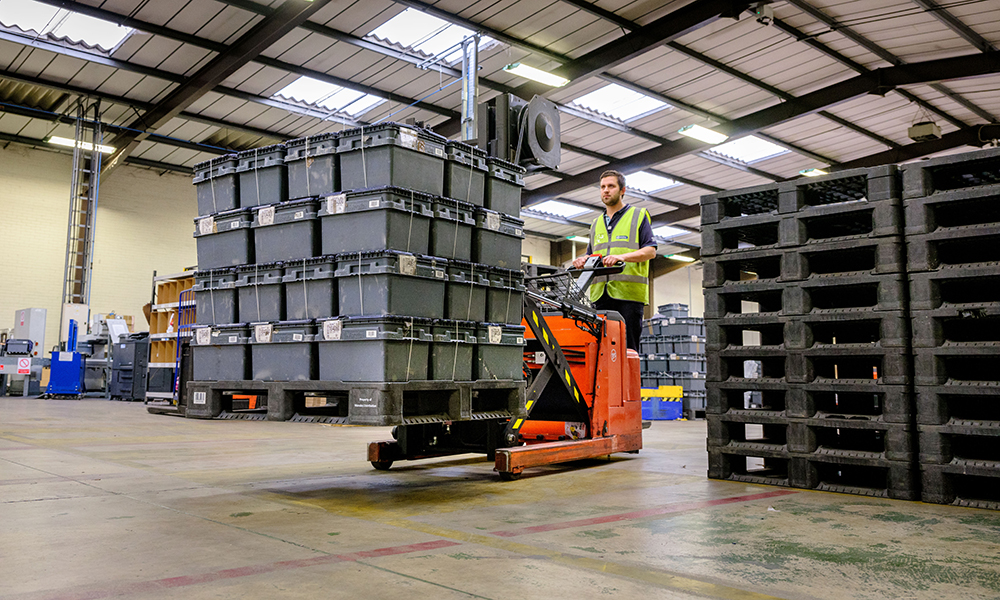Your cart is currently empty!
The Warehouse: Green, Flexible, Safe
Today’s warehouse is radically different to the warehouse of 20 years ago. Steve Penney, Key Account Sales Manager at Goplasticpallets.com has seen the rise of the modern warehouse during his 30+ year career in RTP logistics and explains why plastic pallets have been an integral part of this growth.
Warehouses have changed a lot over the last 20 years, and one of the most notable differences is size. They have grown exponentially, getting bigger and taller. 2021 was a record year for warehouse projects 1, smashing through the £5 billion mark.
Another significant change has seen warehouses getting smarter. Technological advancements have led to the digitalisation and automation of warehouses. This change has been significant in accommodating the boom of e-commerce.
Comparing online sales in the UK from 2001 to 2021 reveals just how much e-commerce has grown. In 2001 online sales in the UK accounted for just 1.6% 2 of total sales. But last year, online sales accounted for almost a third (29%) 3 of all sales in the UK.
So, whether it was by design or necessity, retailers needed to adapt to this increased demand. Expanding their warehouse meant they could hold larger volumes of stock. Adopting smart technologies meant they could improve operational efficiency to fulfil orders – fast.
Since launching in 2001, we at Goplasticpallets.com have been at the forefront of helping warehouses grow and become more efficient. Our reliable and reusable plastic pallets are an integral part of today’s warehouse and offer the best combination of durability, choice, and cost.

A plastic pallet’s strength, dimensional consistency, and minimal deflection under load are beneficial, particularly in Automated Storage and Retrieval Systems (ASRS). These automated systems increase speed and accuracy but only operate efficiently if the components used are reliable. Retailers could use wooden pallets in these systems; however, they are susceptible to weakness and can fail, causing damage to machinery and resulting in costly downtime for the business. This problem doesn’t exist with plastic pallets.
A plastic pallet can work perfectly, time and again over many years, in automated systems. In fact, this longevity can be hugely cost-effective for today’s warehouse. While operating costs, material prices, and fuel prices continue to rise, plastic pallets can potentially save a business thousands of pounds a year – over a 10-year period (or longer) – when compared to buying, maintaining, and replacing wooden pallets.
Another key consideration for today’s warehouse is the environment. Organisations are working hard to reduce their carbon footprint and using plastic pallets can help to make operations more sustainable. Currently, 93% of our pallets are made from recycled material, making use of the valuable plastic resource that already exists. We complete the circular economy loop once the plastic pallets are no longer needed as we responsibly recycle them through our pioneering plastic pallet recycling scheme.
With unrivalled performance, sustainable credentials, and the potential for huge cost savings, plastic pallets are an integral part of today’s warehouse and will continue to be well into the future.
If you are using wooden pallets and want to increase operational efficiency, adopt more sustainable processes, and save money, then please get in touch with one of our plastic pallet experts on 01323 744057 or email sales@goplasticpallets.com.
